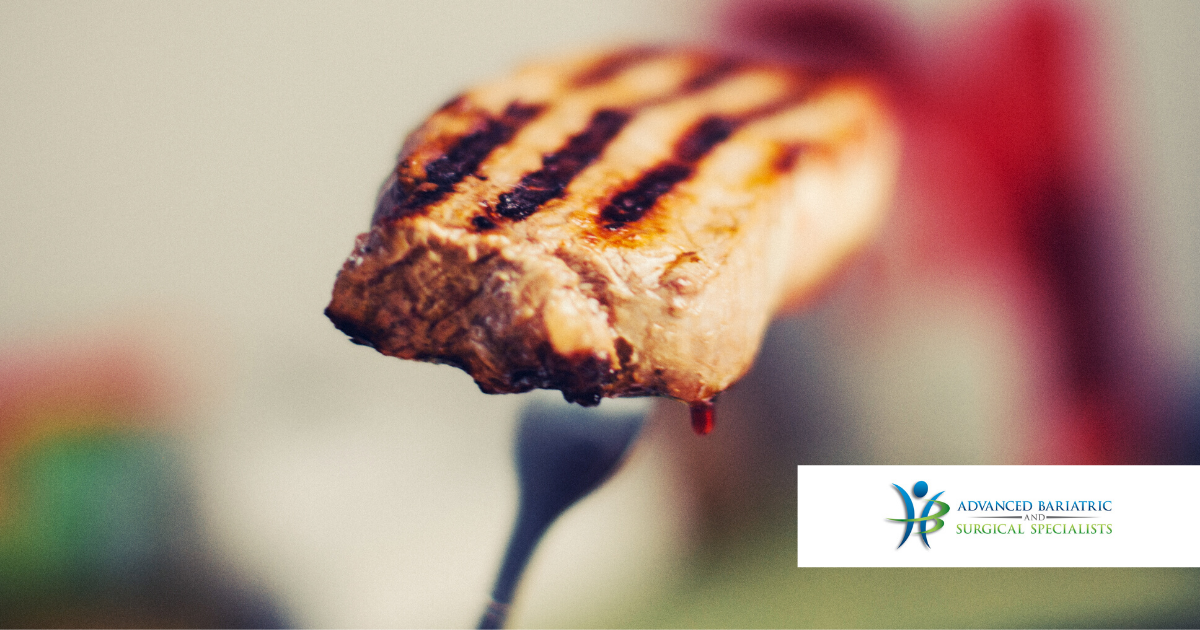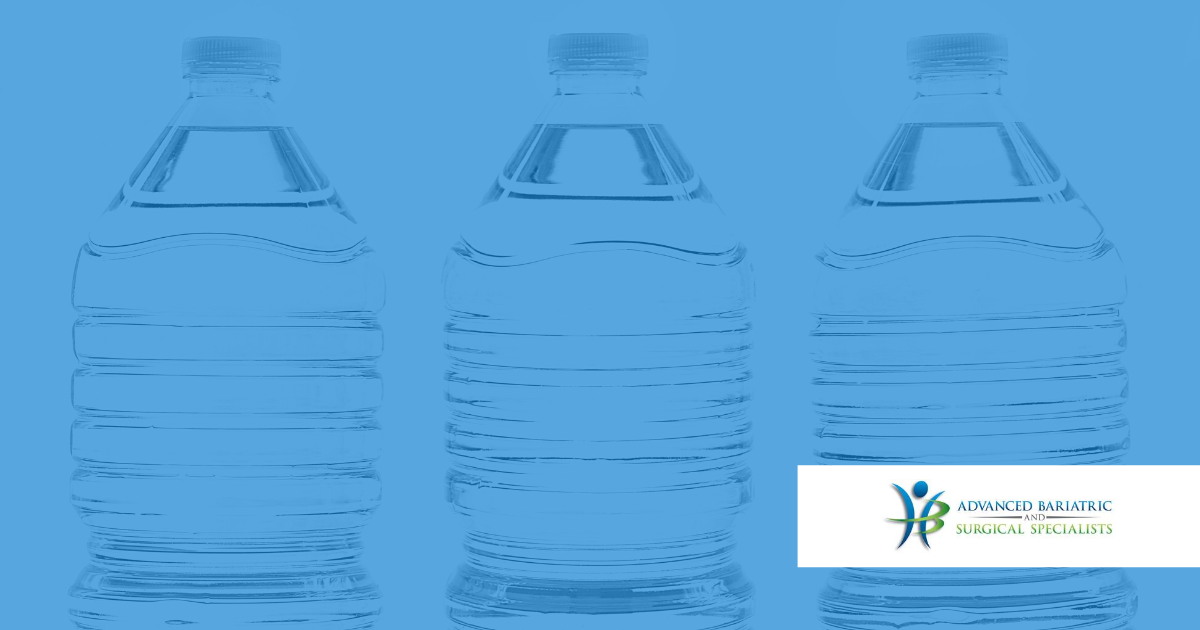Sticking to the Diet Plan After Weight Loss Surgery

Some argue having weight loss surgery is the “easy way out”, but those who have had surgery know it is just the beginning of a lifelong journey.
Sticking to the plan begins well before surgery day. It starts with changing your mind set on food. Food can no longer be used for comfort. Use food to fuel your body! Fruits and vegetables are packed with nutrients your body needs. Have at least one at each meal. Keep protein a part of your meals. Your body NEEDS it!
Emotional Eating and What You Need to Do To Succeed

If you think about it, many people are overweight because they don’t stick with proper diet plans and self-sabotage with food. They may also be kinda resistant to teaching and accountability. They think…”I can fix this on my own”. As you know, very few people actually lose more than 50 lbs. on their own then keep it off…the studies support this. Numerous studies show that massive weight loss rarely occurs with any diet plan (even keto!).
The Association Between Artificial Sweeteners and Obesity
The general public thinks that cutting sugar from the diet and replacing it with artificial sweeteners is a great choice for weight loss. Research suggests otherwise. A recent article from University of Texas Southwestern in Dallas suggests that artificial sweeteners appear to lead to decreased fullness and alter the processing of sugar in the body. Sweeteners were also associated with increased caloric intake and weight gain. “Artificial sweeteners are marketed as a healthy alternative to sugar and as a tool for weight loss. Data however suggests that the intended effects do not correlate with what is seen in clinical practice.”

The Zantac Recall and What You Can Do About GERD
Zantac (generic name ranitidine) is a common antacid which has been in use for years. It belongs to the same class at Pepcid, Tagamet, and Axid. It is a different class of drug as Prilosec, Protonix, Dexilent, and Nexium. Zantac has IV and oral forms. It has been used for the treatment of GERD/heartburn, ulcers, gastritis.

The Food and Drug Administration recently revealed that Zantac contains low levels of a cancer-causing contaminant known as N-Nitrosodimethylamine (NDMA). NDMA was previously identified in a blood pressure drug, leading to recalls. NDMA is associated with increased risk of cancers of the liver, stomach, bladder, kidney, and other organs. The risk is likely higher with prolonged exposure to NDMA. The agency determined that the impurity in some ranitidine products increases over time and when stored at higher than room temperatures.
COVID-19 and Obesity
The Center for Disease Control and Prevention https://www.cdc.gov/coronavirus/2019-ncov/need-extra-precautions/groups-at-higher-risk.html suggests that older patients, immune compromised, and obese patients are at greater risk for severe illness with coronavirus. Specifically, they cite a body mass index (BMI) greater than 40 as a risk factor. Data from China also suggests that higher weight is a risk factor for more severe disease with COVID-19. Compared to normal weight people, overweight and obese people had a much higher risk of developing severe pneumonia. Obesity, especially in men, significantly increases the risk of developing severe pneumonia. In Louisiana, some 97% of those killed by COVID-19 had a pre-existing condition, according to the state health department. Diabetes was seen in 40% of the deaths, obesity in 25%, chronic kidney disease in 23% and cardiac problems in 21%. Continue reading
COVID-19 and Bariatric Surgery – Part II
There is a wealth of information on the internet about the novel coronavirus. Instead of rehashing it, I would like to look at this situation from two other perspectives.
FIRST
Weight loss matters. We know that COVID-19 infections are worse when patient have underlying medical problems and are immune suppressed. For example, those with emphysema and asthma do worse with COVID 19 infection. Those who are immune suppressed may be more likely to die. Obesity makes all medical problems worse. If a patient has emphysema, it’s worse because of the obesity…the extra weight makes it more difficult to breathe. It’s not rocket science! Imagine lying in bed trying to breathe with a 50 pound weight on your chest! I have had multiple patients tell me that their respiratory problems improved after bariatric surgery.
COVID-19 and Bariatric Surgery
There is an abundance of information on the web about COVID-19. Each day, there is new news. Multiple updates are available about the global cases, deaths, and recoveries. I’ve found the Johns Hopkins website to be helpful when looking at the statistics. In China, the majority of cases now fall into the “recovered” group, not the “active” group. In the US, almost all cases are active and few are recovered.
Does Obesity Cause Other Diseases?
It is no secret that obesity has been linked to multiple health conditions, ranging from minor to deadly. Human bodies are extremely complex systems, with near unlimited factors we can’t control. Connections have been found between obesity and an increased occurrence of: coronary heart disease, stroke, dementia, breast cancer, endometrial cancer, colon cancer, kidney cancer, gallbladder cancer, liver cancer, sleep apnea, hypertension, high cholesterol, type 2 diabetes, gallbladder disease, osteoarthritis, breathing problems, clinical depression, anxiety, chronic pain, and functional difficulty.
What Is Barrett’s Esophagus and Why Does it Matter?
Barrett’s esophagus is a precancerous condition of the esophagus (the food tube which connects the mouth and stomach). Barrett’s is almost always seen with long-standing reflux or heartburn. Years of stomach acid in the esophagus irritate the lining and eventually transform the lining. Barrett’s can generally be seen if you have a scope down the mouth. It shows up as a slightly darker area of the lower esophagus.

The Power of Water and Hydration
Did you know, it is estimated that upwards of 75% of Americans, are chronically dehydrated? 75%! That means the ¾ of us feel sluggish more often than we should, eat more than we should and generally keep our bodies working in a less than optimal state, from lack of water.





